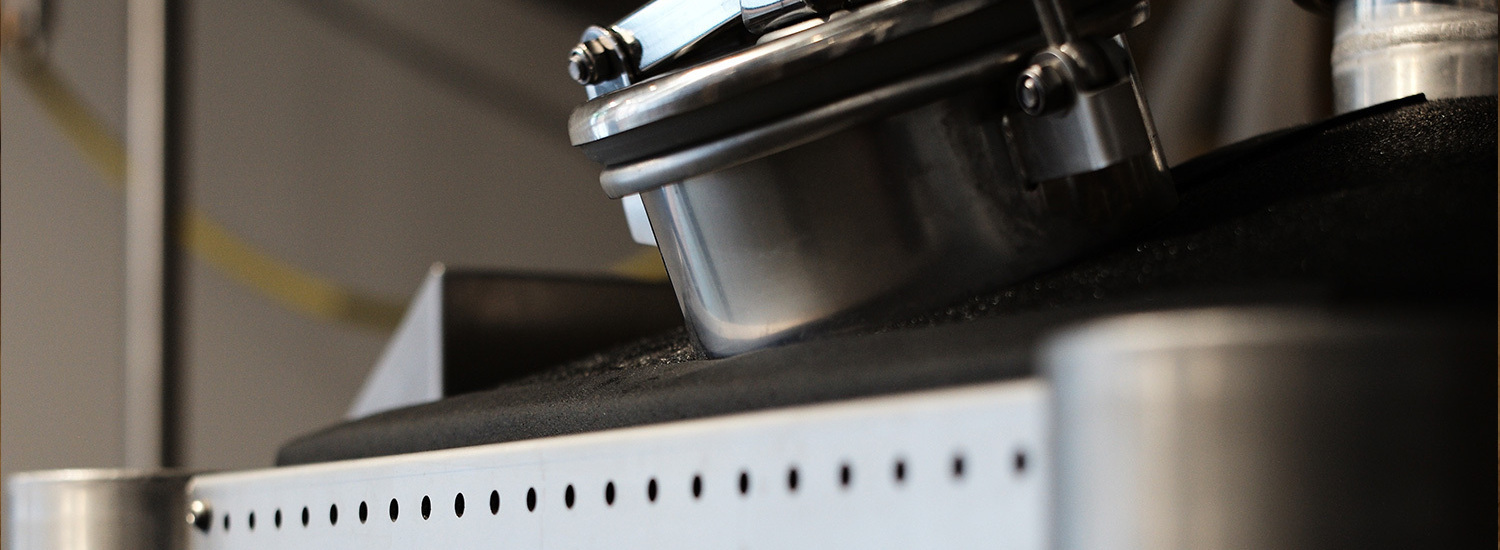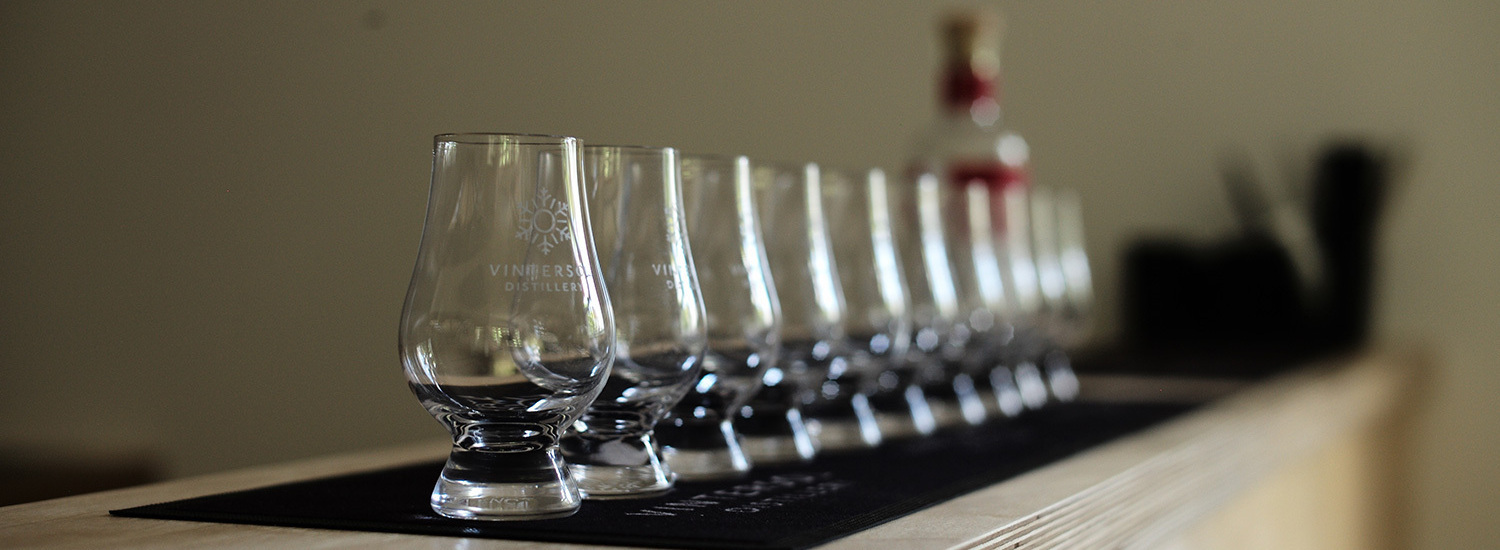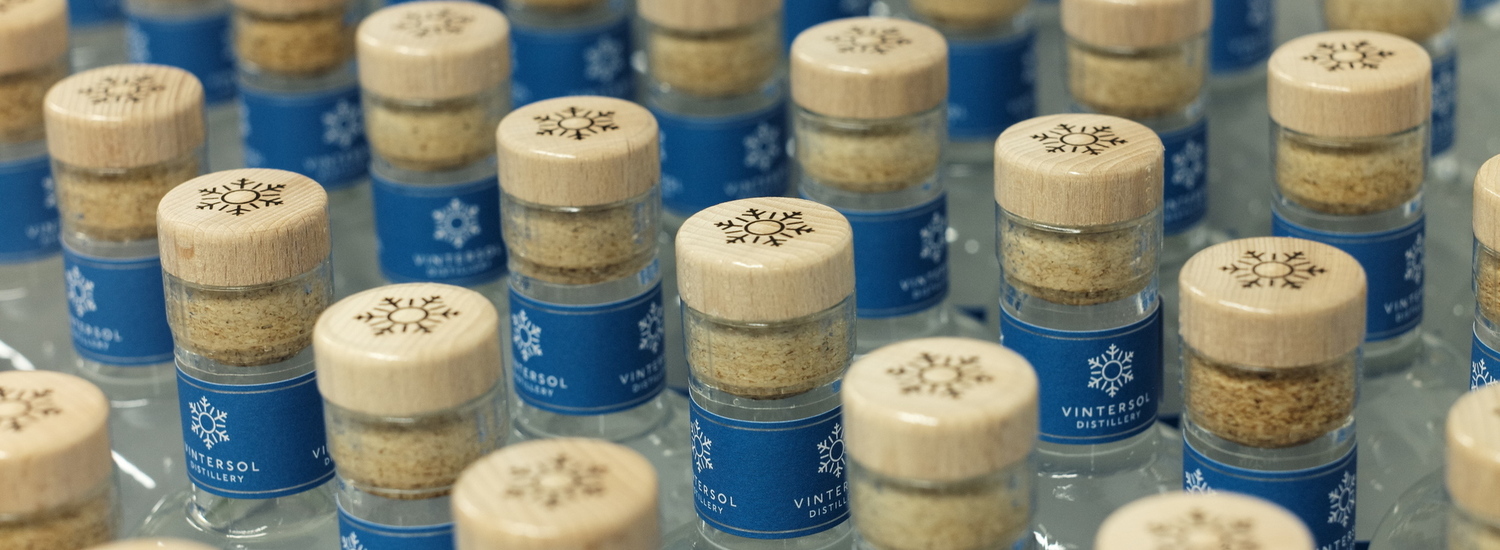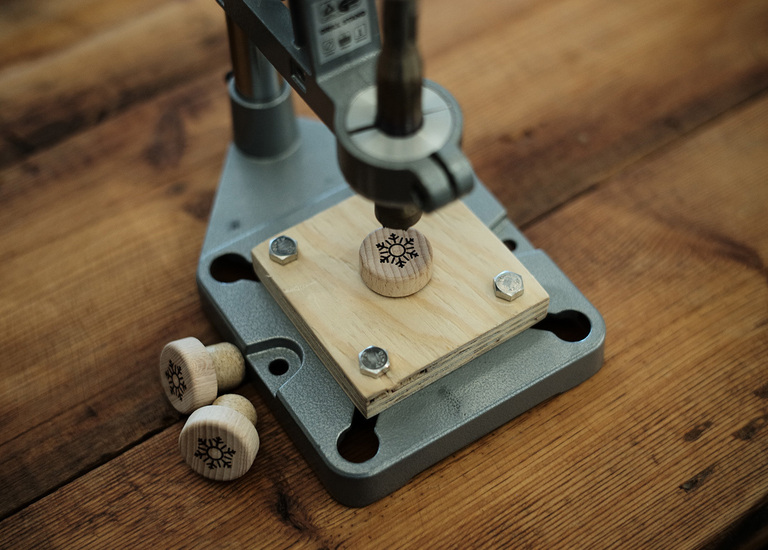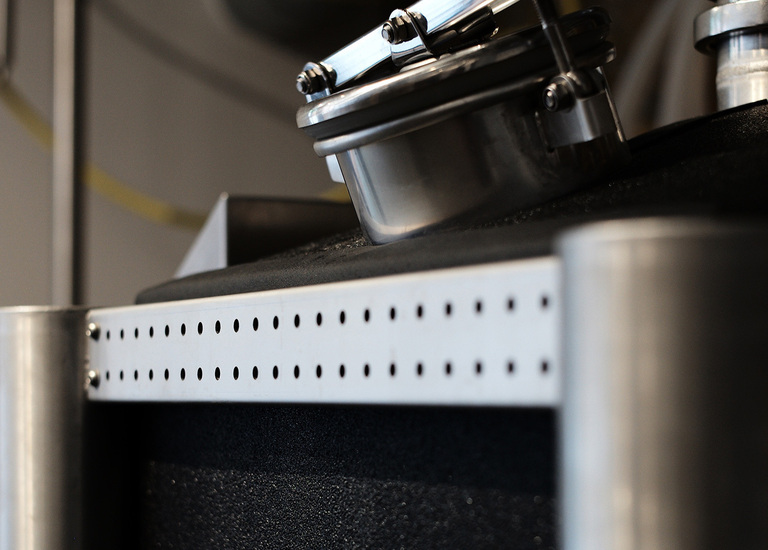
posted 13th March 2024

There are hundreds of (delicious!) Scandinavian aquavits...
An Introduction
We are proud to be the first British distillery to focus on aquavit. From its earliest use as a medicinal tonic to its modern role in festive gatherings, aquavit is an intrinsic component of Scandinavian culture, synonymous with good times spent with friends and family. And yet, it is almost unknown outside the Nordic countries. So, and as you might imagine, we are often asked what it actually is. At its core, there’s a simple answer: aquavit is a spirit created from grain or potatoes that is primarily flavoured with distilled caraway or dill seed. But to really understand what makes aquavit so unique, you first must understand its history.
This is the first of a 3-part series on the history of aquavit. Join us as we delve into the captivating world of this iconic libation, uncovering its origins, botanical influences, and the distilling traditions that have shaped its unique character.
Aqua vitae eunt domus
If ever you think in terms of Latin, you can probably work out that the word ‘aquavit’ is derived from 'aqua vitae', meaning ‘water of life’. Unsurprisingly then, given its linguistic origins, the term can be traced back to the Romans, who typically used 'aqua vitae' in reference to rarified liquids such as baptismal waters, some medicines, and, perhaps mostly importantly for us, distillates of all kinds.
Distillation was a well-adopted concept at this time; indeed, there are references to processes akin to distillation as far back as 4000 BC in Mesopotamia. Many ancient societies including the Egyptians, Chinese, Indians, and of course the Romans utilised distillation techniques for a variety of purposes, including perfume production and religious rituals. Aristotle wrote of a 'materia prima', which could be rarefied by heat and condensed by cold, and Egyptian papyri contain diagrams of different distilling apparatus. However, the concept was perhaps not applied to alcohol specifically until the 9th century, when the scholar Jābir ibn Ḥayyān is alleged to have used an alembic to transform wine into a highly potent spiritous liquid.
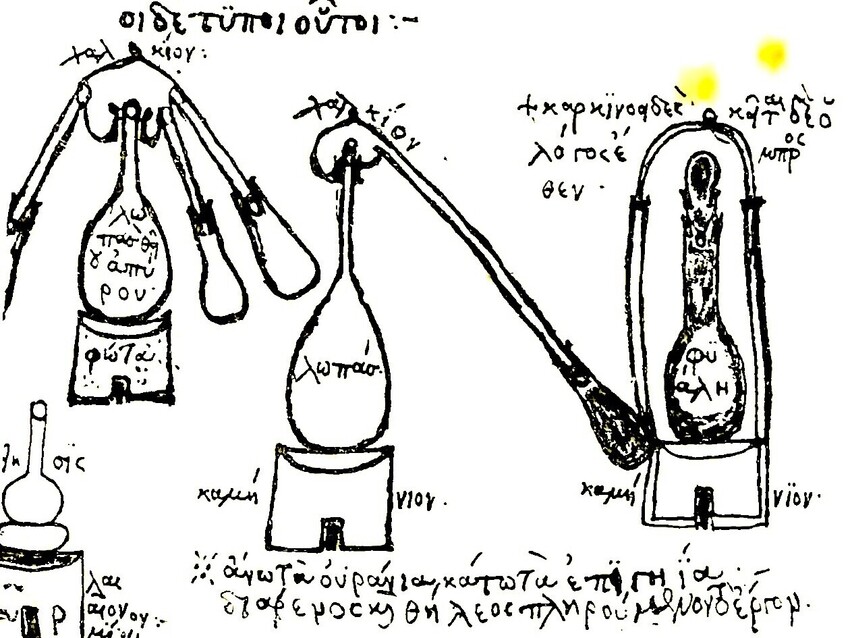
A 15th century conceptualisation of the distillation equipment of Zosimos, a 3rd/4th century Greco-Egyptian alchemist
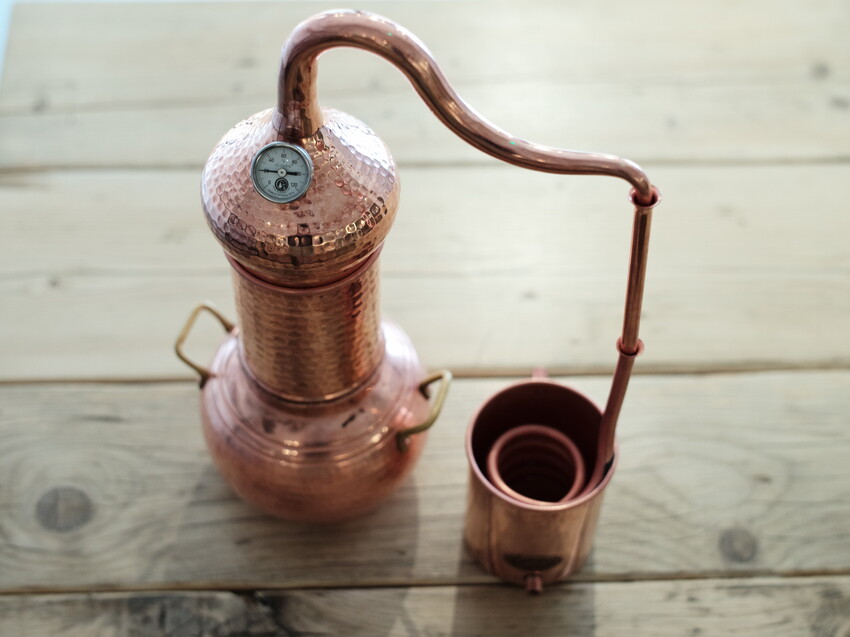
A slightly more modern take on the alembic
(Not) Lost in Translation
It would take Europe several centuries to catch up, and it was not until around 1150 that we see the first reference to the distillation of alcohol in Europe, when the process of distilling alcohol from wine was briefly mentioned in a text published at the medical school in Salerno, Italy. As Latin was the lingua franca of scholars at the time, the use of the term aqua vitae specifically to refer to this wondrous liquid was not far behind. One of the first recorded uses was by the Italian doctor, Taddeo Alderotti, in his book De Virtutibus Aquae Vitae, wherein he details a process for distilling wine and creating the aforementioned spirit, which he describes as ‘the mother and mistress of all medicines’. We probably wouldn’t go that far, but he did live to 87 so perhaps he had a point.
And so, the term aqua vitae accompanied the practice of distilling alcohol as the latter spread from Italy across Europe, changing and evolving according to the local language and linguistic tradition. For instance, in France it became 'eau de vie'; in Irish 'uisce Beatha', from which we derive the English word 'whisky' or 'whiskey' (depending on where you are); and in Scandinavia, 'aquavit'.
Whilst the name evolved along the journey, the medicinal context, and acceptance of the healing properties of aqua vitae endured, for it was not only the spirit itself that was supposedly possessed of these wondrous capabilities, but also the botanicals with which it was distilled.
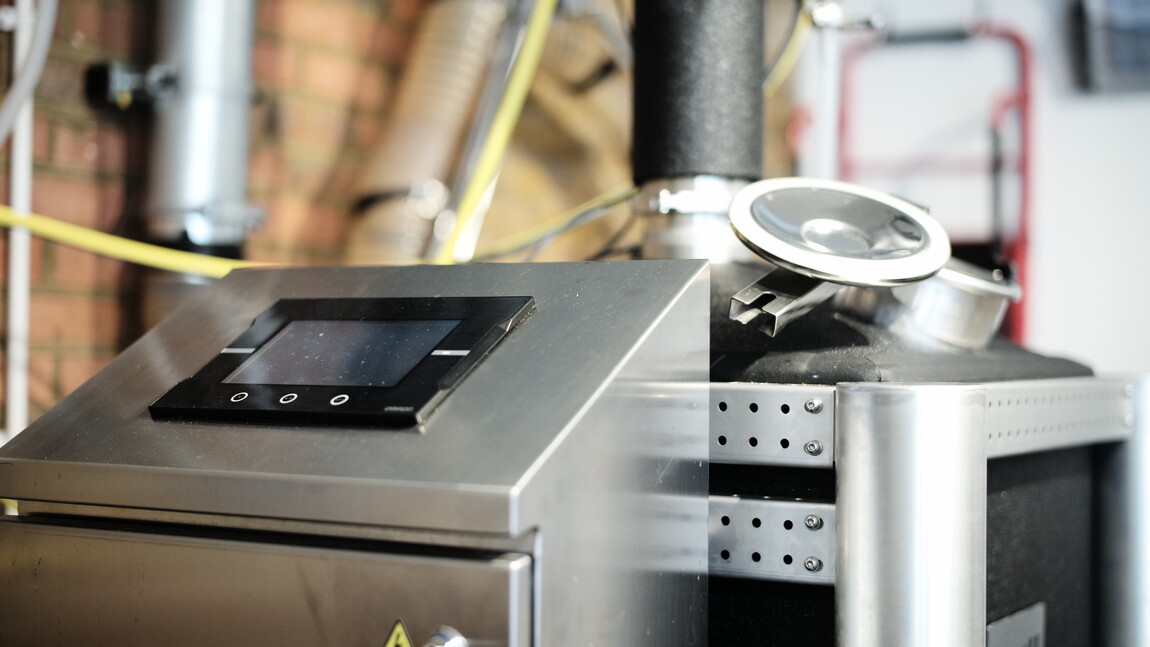
Gytha is actually a medical device, we promise



